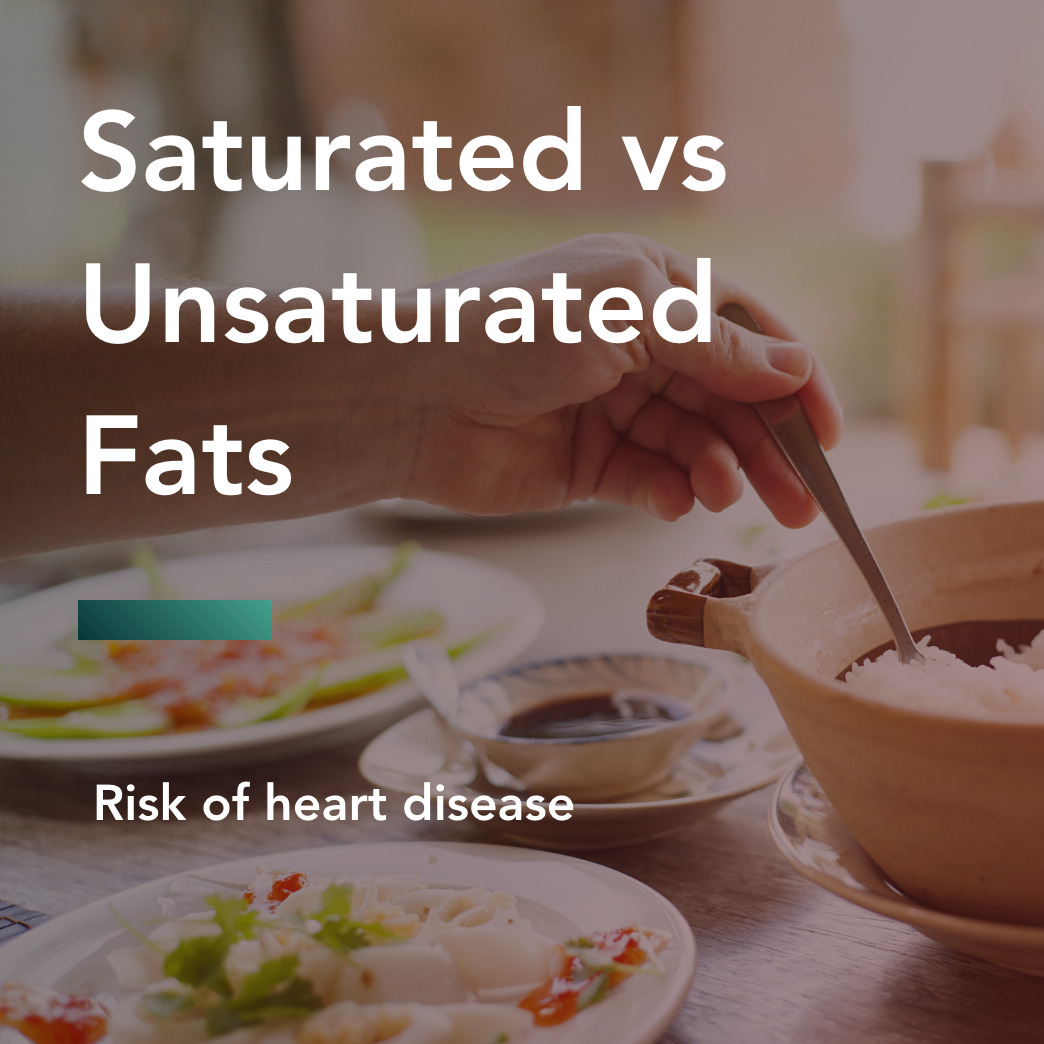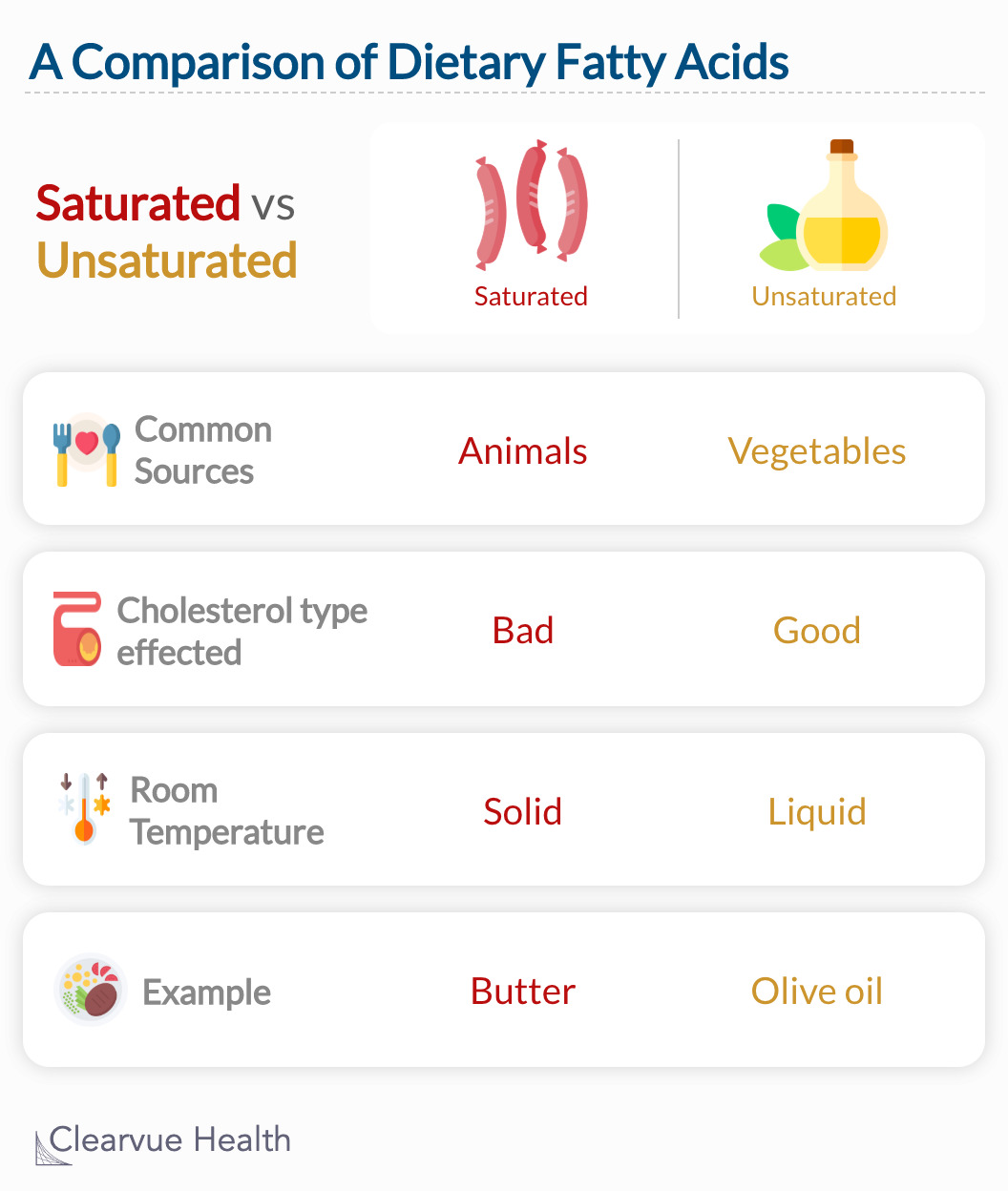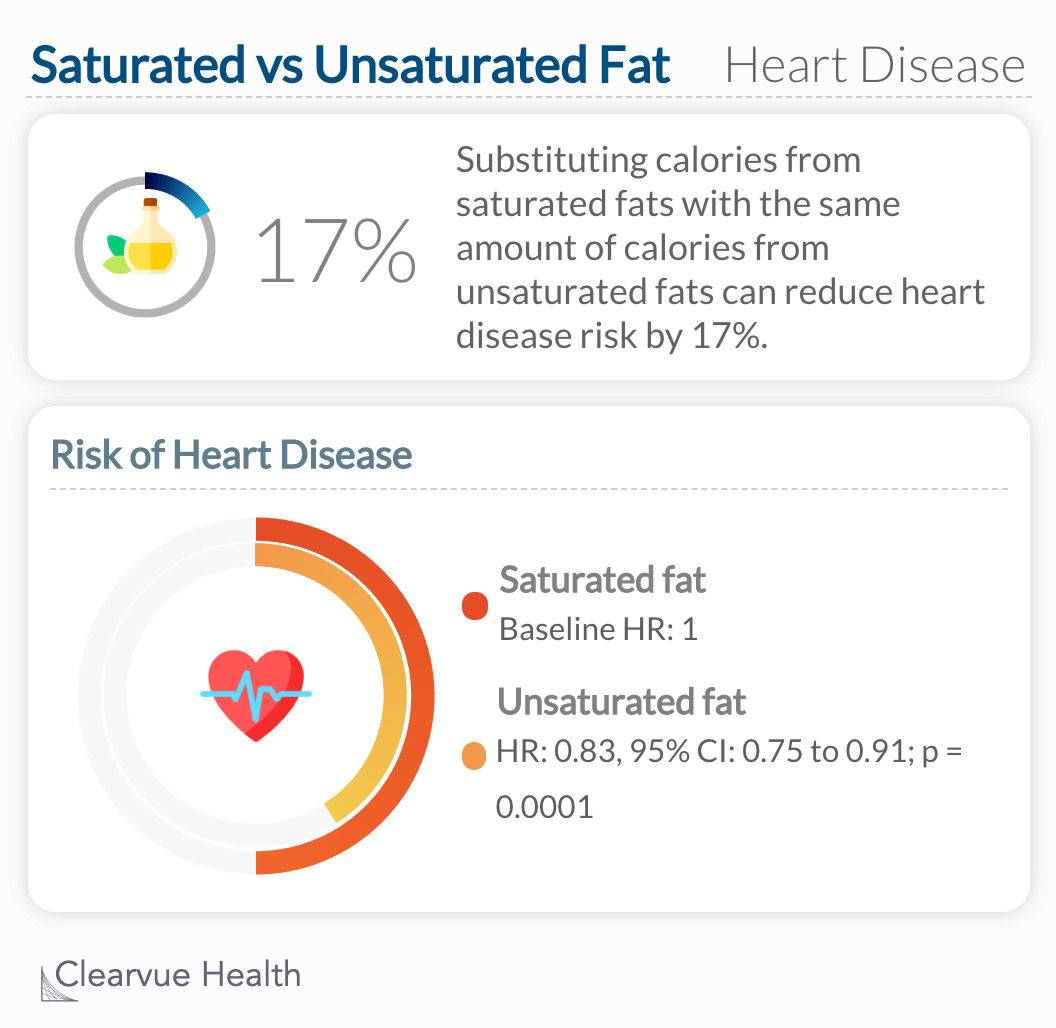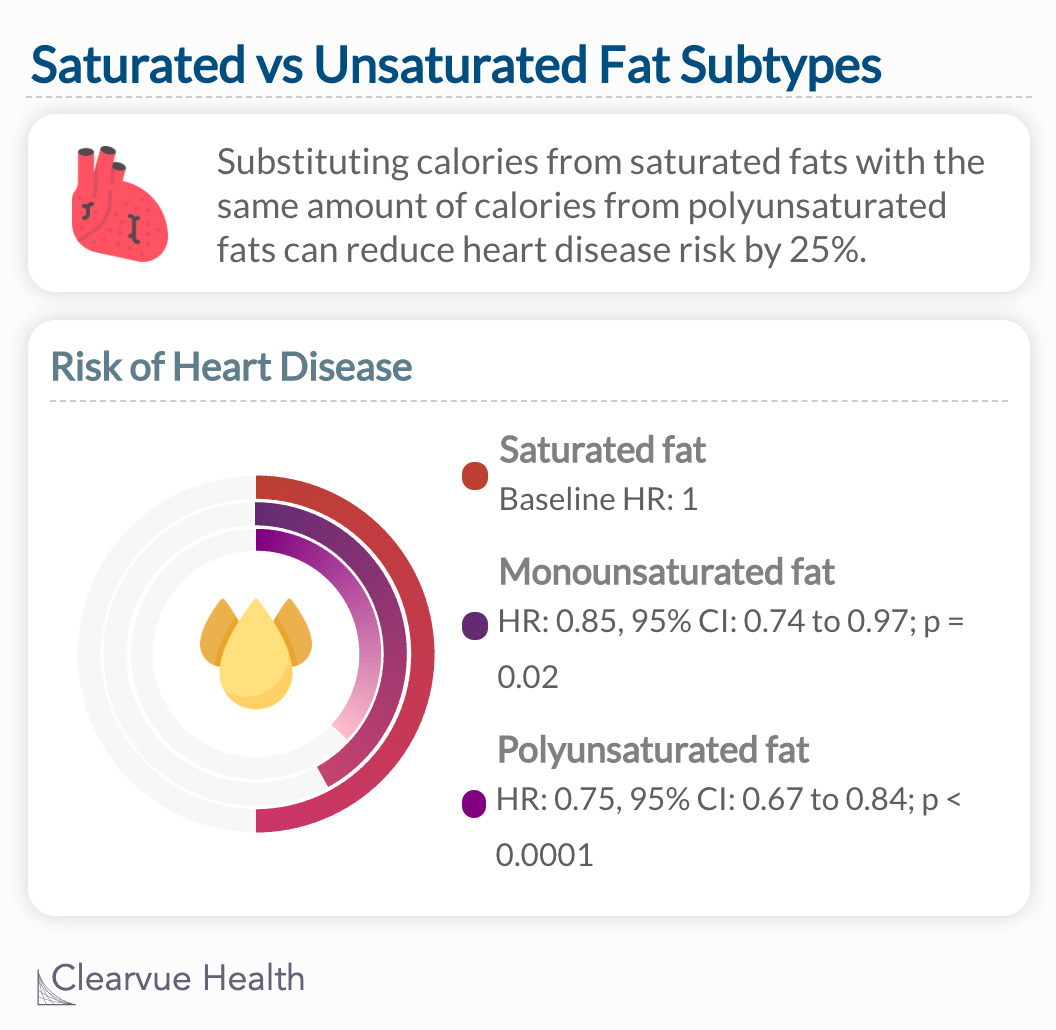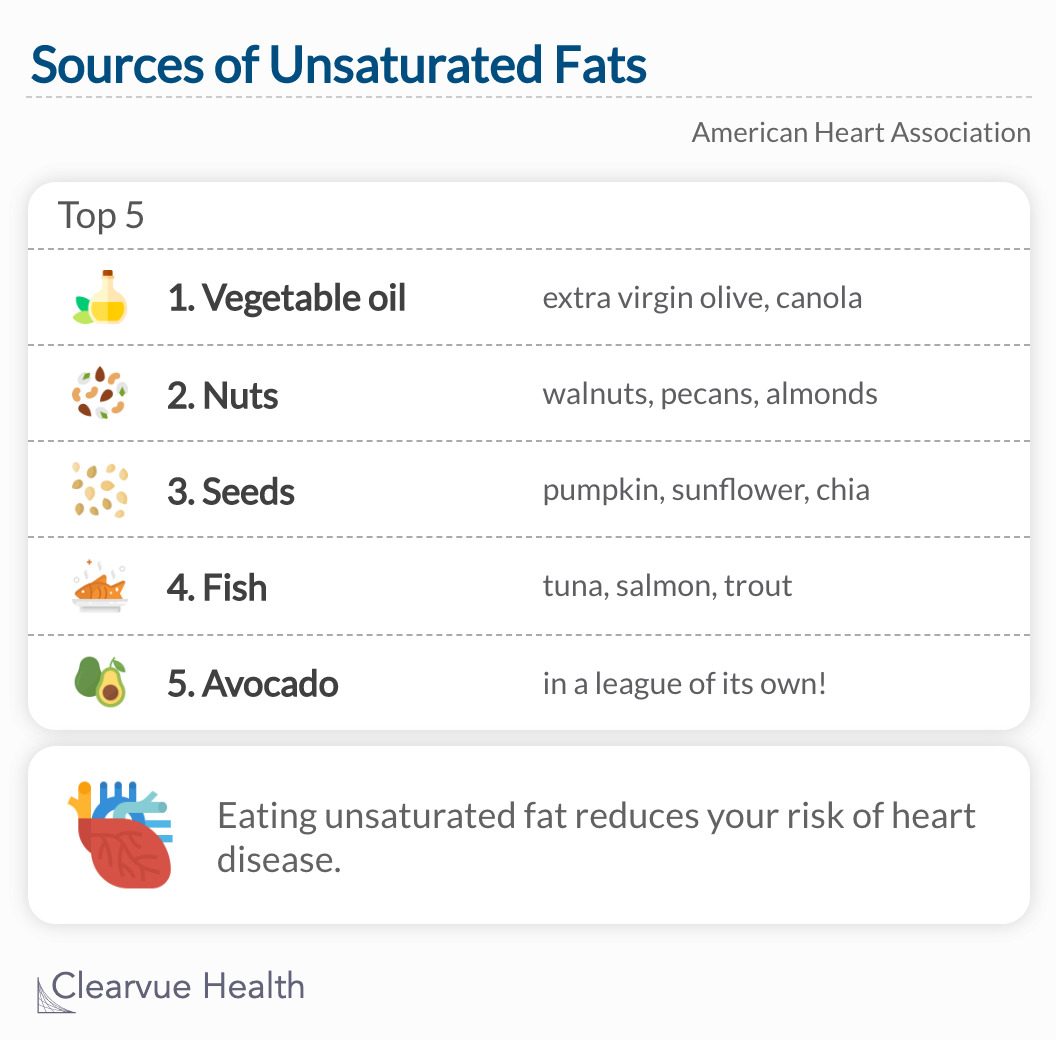Source: Saturated Fat Consumption and Risk of Coronary Heart Disease and Ischemic Stroke: A Science Update
Not all fats are created equal. You've probably seen dietary fats reported on the back of your cereal box or jug of fresh lemonade. What the box doesn't tell you are the implications for your long-term health.
Saturated Fat vs Unsaturated Fat
Saturated fats are solid at room temperature and can be found in animal products like meat, butter, and cheese. Eating saturated fat is known to increase cholesterol that builds up in your blood vessels.
“
Although saturated fats have typically been viewed as unhealthy, newer evidence suggests that saturated fats do not significantly increase or decrease the risk of heart disease.
UpToDate, 2020
Unsaturated fats are a different story. They are liquid at room temperature and are typically found in vegetable oils, nuts, and seeds. Eating unsaturated fats increases the cholesterol that helps transport fats safely through the body.
Source: LDL and HDL Cholesterol: "Bad" and "Good" Cholesterol
Heart Disease Risk
Source: Saturated Fats Compared With Unsaturated Fats and Sources of Carbohydrates in Source: Relation to Risk of Coronary Heart Disease: A Prospective Cohort Study
A well-regarded study in the Journal of the American College of Cardiology measured the association between dietary fats and heart disease. Researchers followed 84,628 women and 42,908 men for 24 to 30 years and collected data on their diets and incidence of heart disease.
Over the study period, 7,667 cases of heart disease were documented. Researchers observed a decrease in heart disease risk when calories from saturated fat were substituted for unsaturated fat.
They further compared the two different types of unsaturated fats, monounsaturated and polyunsaturated, and their relative risk reduction in heart disease to saturated fat.
For context, monounsaturated fat is found in foods like avocados and olive oil, and polyunsaturated fat is found in foods like salmon and walnuts.
As we stated above, substituting calories from saturated fat with unsaturated fat was associated with a 17% reduced risk of heart disease. When looking at the unsaturated subtypes, they found a 15% risk reduction when substituting with monosaturated fats and a 25% risk reduction when substituting with polyunsaturated fats. Both types of unsaturated fats are effective in risk reduction, but polyunsaturated fats were the most effective.
What does this all mean?
Replacing saturated fat with unsaturated fat is a health behavior that offers preventative effects against heart disease.
However, regulating your dietary fat intake can not prevent heart disease all on its own. There are many other factors that influence your risk of heart disease. This data suggests that choosing the unsaturated fat option can be one of many preventative behaviors in reducing your risk of heart disease.
Below, we've listed the top 5 sources of unsaturated fats to get you started.
Source: AHA Fats
